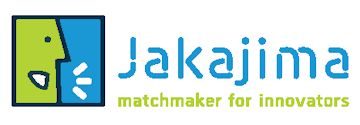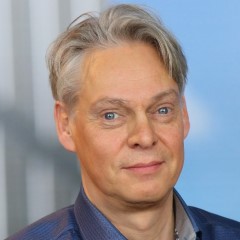Niek Doelman is a professor at the Leiden University with a research chair on the ‘Control of Optical Wavefields’ at the Leiden Observatory. He is also a senior scientist at TNO Industry/Space with a main focus on Free-space Optical Communication.
He graduated in 1987 in Applied Physics and obtained the PhD degree in 1993 both at the Delft University of Technology. He is the lead scientist in the TNO Early Research Program on Laser Satellite Communication. His research interests include Adaptive Optics, Mechatronics, high-resolution astronomical imaging and free-space optical communication.
TNO is the Netherlands Organisation for applied scientific research. The TNO Unit Industry has the ambition to advance Dutch industry within the context of sustainable development goals. The solution for the problems facing humanity today will to a large extent rely on new technologies, that enable new materials, products, processes and services.
Ever since its foundation, TNO Space has been active in the field of advanced optical instruments, and for over 50 years has been developing instruments for use in space, astronomy, scientific research and manufacturing industry. Examples of this work include the development of instruments for measuring the ozone layer (GOME and TROPOMI) and a space telescope (GAIA).
Optical Satellite Communication has become a major pillar of the applied research and development activities at TNO Space, since it enables secure and broadband connectivity.
Leiden Observatory is the astronomical institute of the Faculty of Science of Leiden University. Established in 1633, it is the oldest university observatory in operation today, with a very rich tradition. Leiden Observatory carries out world class research in the formation of structures in the universe and the origin and evolution of galaxies, the detection and characterization of exoplanets, and the formation of stars and planetary systems. The institute consists of about 35 faculty and adjunct faculty, 50 postdoctoral researchers, 50 MSc and 80 PhD students, and 30 support staff. We offer an excellent educational programme at the Bachelor’s and Master’s levels and a renowned PhD programme. Within the Faculty of Science, the institute closely collaborates with the Leiden Institute of Physics, the Mathematical Institute and the Leiden Institute of Advanced Computer Science.
The Optical Wireless Communication Conference focuses on leading edge research on Optical Wireless Communication in its different forms and gathers experts from academia and industry to show their latest technical results and showcase their products and services. The application scope is broad and it ranges from Ultra-short range to Ultra-long range.
He is member of the Technical Committee of this conference.
Conference topics cover visible light communication, infrared optical and ultraviolet communication. These different forms of OWC can potentially be employed in a diverse range of communication applications ranging from optical interconnects within integrated circuits through outdoor inter-building links to free-space satellite communications.
The following topics will be covered during the conference:
- Ultra-short range: for instance chip-to-chip communications in stacked and closely packed multi-chip packages
- Short range: For instance wireless personal area network (WPAN) applications under standard IEEE 802.15.7 and underwater communications.
- Medium range: indoor IR and visible light communications (VLC) for wireless local area networks (WLANs) and inter-vehicular and vehicle-to-infrastructure communications.
- Long range: inter-building connections, also called free-space optical communications (FSO).
- Ultra-long range: Laser communication in space especially for inter-satellite links and establishment of satellite constellations

